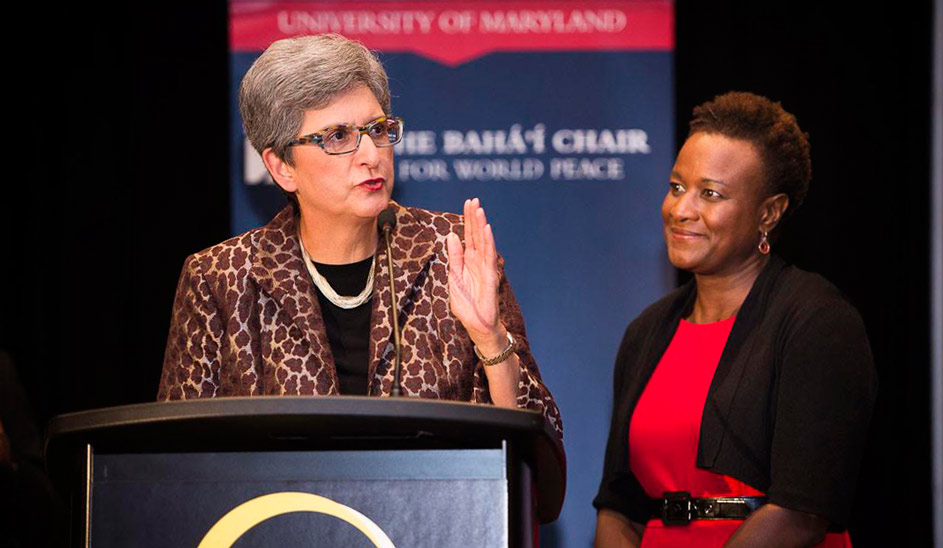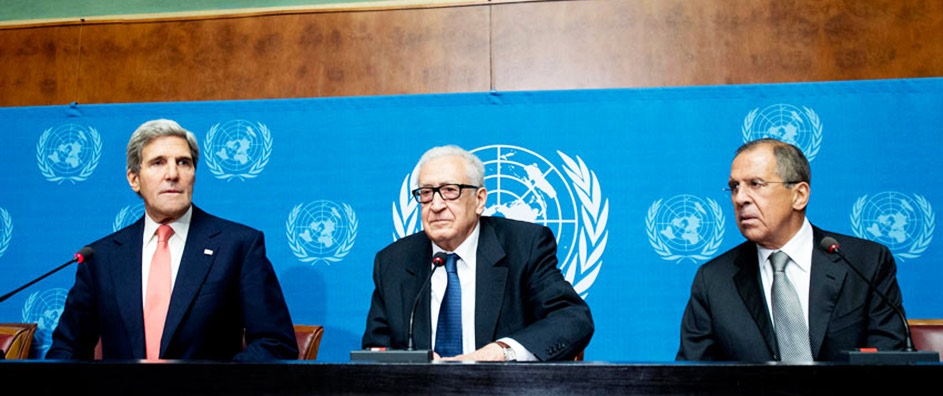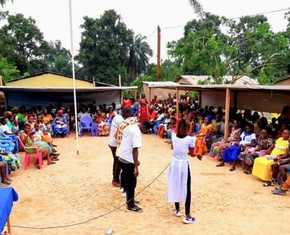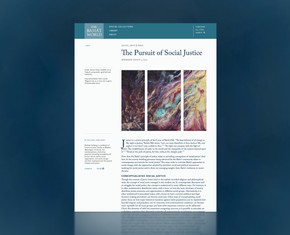Another fact of equal importance in bringing about international peace is woman’s suffrage. That is to say, when perfect equality shall be established between men and women, peace may be realized for the simple reason that womankind in general will never favor warfare. Women will not be willing to allow those whom they have so tenderly cared for to go to the battlefield. When they shall have a vote, they will oppose any cause of warfare. – Abdu’l-Baha, The Promulgation of Universal Peace, p. 167.
Leading international peace experts, many of them women, gathered at a recent University of Maryland conference in the U.S. to address issues related to global peace.
Some 300 people attended the ’Global Transformations: Context and Analytics for a Durable Peace’ conference at the University of Maryland on 7 to 9 October, organized by the Baha’i Chair for World Peace and the Baha’i International Community.
Top academics and practitioners shared research and insights on themes relevant to peace during the conference.
In one session on women in peace-building efforts, Dr. Anne-Marie Goetz, a professor at New York University, said peace talks have been more successful in countries where women are included as major actors in the process. She stressed the critical need to include women in peace-building efforts. “Peace talks remain stubbornly male-dominated,” said Dr. Goetz.
In her presentation, Dr. Prudence Carter, a sociologist at Stanford University, looked at the nexus of race, education and inequality, and spoke about the need for a movement to cultivate empathy and understanding as part of efforts to address inequality in society. Education is one of the major conduits for improving the effects of gender, race and class inequality, she explained.
Presentations also addressed a range of related themes, including human rights and global governance, architecture for social inclusion, and resource conflict.
“We really wanted to learn about obstacles preventing peace from becoming a reality in our world today,” said Dr. Hoda Mahmoudi, holder of the Baha’i Chair and one of the conference speakers.

Dr. Hoda Mahmoudi (left), holder of the Baha’i Chair for World Peace, addresses the audience of the Global Transformations conference at the University of Maryland. Dr. Prudence Carter, a sociologist at Stanford University, is on the right.
The conference marked the 30 year anniversary of the release by the Universal House of Justice, the democratically-elected global administrative body of the worldwide Baha’i community, of a landmark document entitled The Promise of World Peace. That same document—outlining the prerequisites for and challenges to peace—inspired the founding of the Baha’i Chair for World Peace in 1993:
The Great Peace towards which people of good will throughout the centuries have inclined their hearts, of which seers and poets for countless generations have expressed their vision, and for which from age to age the sacred scriptures of mankind have constantly held the promise, is now at long last within the reach of the nations. For the first time in history it is possible for everyone to view the entire planet, with all its myriad diversified peoples, in one perspective. World peace is not only possible but inevitable. It is the next stage in the evolution of this planet — in the words of one great thinker, “the planetization of mankind…”
The emancipation of women, the achievement of full equality between the sexes, is one of the most important, though less acknowledged prerequisites of peace. The denial of such equality perpetrates an injustice against one half of the world’s population and promotes in men harmful attitudes and habits that are carried from the family to the workplace, to political life, and ultimately to international relations. There are no grounds, moral, practical, or biological, upon which such denial can be justified. Only as women are welcomed into full partnership in all fields of human endeavour will the moral and psychological climate be created in which international peace can emerge. – The Promise of World Peace, pp. 1-3.
In commenting on the timeliness of the event, Dr. Mahmoudi explained that “there is an urgent need to explore alternative possibilities to address the current threats that are responsible for destabilizing the international order and inflicting violence and harm on millions of people throughout the world.”
The Baha’i Chair for World Peace at the University of Maryland is a forum for research and discourses on world peace, drawing on “insights from religion” while aiming “to develop a sound scientific basis for knowledge and strategies that lead to the creation of a better world.” Many of the concepts presented at this conference, especially the further inclusion of women in peace-building, come directly from the Baha’i teachings:
…strive to show in the human world that women are most capable and efficient, that their hearts are more tender and susceptible than the hearts of men, that they are more philanthropic and responsive toward the needy and suffering, that they are inflexibly opposed to war and are lovers of peace. Strive that the ideal of international peace may become realized through the efforts of womankind, for man is more inclined to war than woman, and a real evidence of woman’s superiority will be her service and efficiency in the establishment of universal peace. – Abdu’l-Baha, The Promulgation of Universal Peace, p. 283.
















Comments
Sign in or create an account
Continue with Googleor